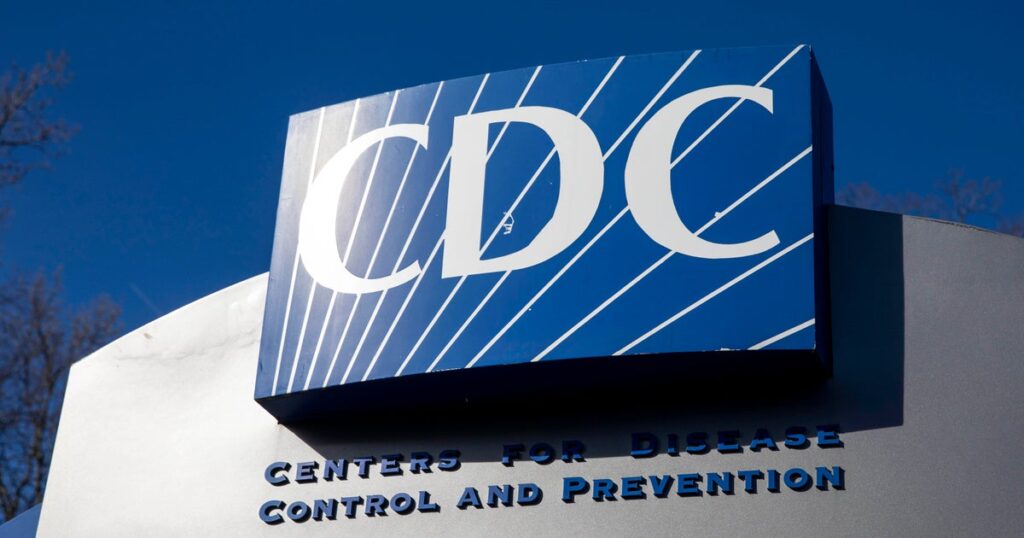Nearly half of the Centers for Disease Control and Prevention’s staff working on developmental disabilities and birth defects was laid off this month, multiple officials tell CBS News, wiping out teams working on research about adults with cognitive disabilities and sickle cell disease.
Work likely to be halted by the cuts includes the collection of data for studying Americans with sickle cell, a painful blood disorder that predominantly affects Black families, as well as supporting testing for its more dangerous complications.
“If it is not restored, it will disrupt life-saving public health programs, halt critical research, and increase preventable hospitalizations, complications, and deaths. Its elimination runs counter to the Administration’s stated commitment to addressing chronic disease,” said Dr. Belinda Avalos, president of the American Society of Hematology, in a statement this week.
Health and Human Services Secretary Robert F. Kennedy Jr. has expressed openness to restoring some programs he gutted, like the CDC’s lead poisoning experts, though for now they have yet to be reinstated.
“HHS is following the Administration’s guidance and taking a careful look at all divisions to see where there is overlap that could be streamlined to support the President’s broader efforts to restructure the federal government. This is to ensure that HHS better serves the American people at the highest and most efficient standard,” HHS spokesperson Vianca Rodriguez Feliciano said in a statement.
In addition to the blood disorders division, Kennedy’s layoffs wiped out the entire leadership team atop CDC’s National Center on Birth Defects and Developmental Disabilities that housed it. Support staff for the center, as well as its Disability and Health Promotion Branch, were also cut.
That branch had been responsible for a federal database tracking state-level rates of adults with disabilities. Researchers and health authorities rely on the data to target resources where they’re needed most, and to study patterns and trends in disabilities.
A now-stalled upcoming release of data had been expected to help shed light on a recent increase in cognitive disability among younger adults, an official said.
“There seems to be a step back to see developmental disabilities, like autism, being only in childhood. The branch provided key public health expertise for disability in adulthood, where people spend most of their lives,” said a current CDC official, who spoke on the condition of anonymity.
It has also ended work on the congressionally mandated Early Hearing Detection and Intervention programs, which fund states and other efforts to screen and diagnose children’s hearing issues.
Nearly all U.S. newborns are now screened for hearing loss thanks in part to the program, according to the center’s data, up from less than half of newborns 25 years ago. States had also been working with the branch on efforts to increase follow-up rates.
Also eliminated in the cuts were CDC staff overseeing a partnership with the Special Olympics — an organization founded by Kennedy’s aunt, Eunice Kennedy Shriver, and now chaired by his cousin, Timothy Shriver. The CDC program had provided health screenings and collected data on people with intellectual disabilities.
Only a handful of researchers remain on the job in the center, in the agency’s Child and Development and Disability Branch and Division of Birth Defects and Infant Disorders.
This includes researchers working on the CDC’s autism monitoring network, which produce figures that Kennedy has often cited as evidence that rates of autism are on the rise.
Many of those remaining staff are expected to be merged into Kennedy’s new Administration for a Healthy America agency, two officials said, along with staff from the CDC’s centers focused on chronic disease and drug overdoses.
HHS had previously said that AHA would combine teams from several agencies, including the Substance Abuse and Mental Health Services Administration.
Matt Buzzelli, the Trump administration’s chief of staff at the agency, has told aides that Kennedy sees AHA as a “flagship” agency for Kennedy’s legacy, two officials said, housing most of the work on his priorities to combat chronic disease.



